Starting an Airbnb can be exciting, but also be financially challenging. Whether you’re listing a spare room or launching a full-time vacation rental business, understanding your Airbnb startup cost is key to long-term success.
From furnishing your space to covering cleaning and management expenses, every dollar you spend will directly affect your profit margins. So, how much does it actually cost to start an Airbnb? And where can you cut costs without cutting corners?
In this guide, we’ll break down the real startup expenses and share smart tips to help you budget wisely from day one.
Managing a short-term rental means juggling countless daily tasks. That’s where Hostex comes in; it automates up to 70% of your operations, from guest messaging to cleaning assignments.
Even better, Hostex starts at just $4.9/month, making it one of the most budget-friendly tools for new hosts.
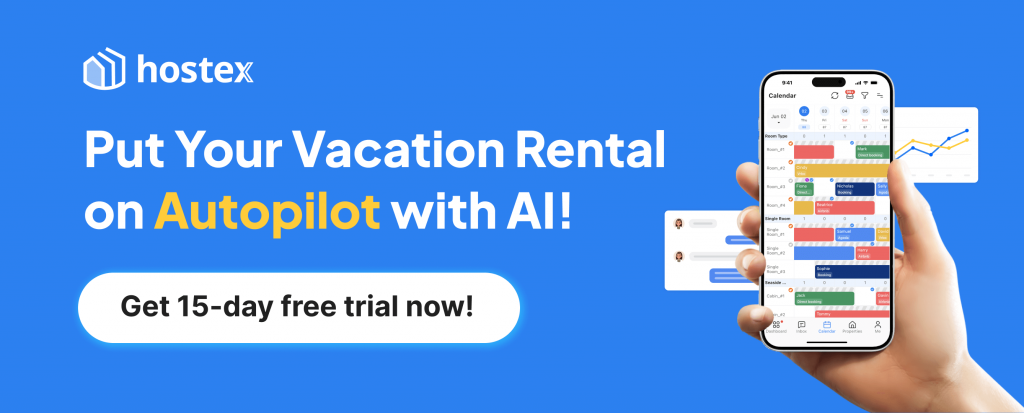
How Much Does It Cost to Start an Airbnb?
When calculating the Airbnb startup cost, many new hosts only consider rent and renovations. However, launching a short-term rental involves many other hidden costs that can impact your bottom line.
Here’s a detailed breakdown of the key expenses to expect when starting your Airbnb business:
1. Rent or Mortgage
For most Airbnb startups, rent or mortgage payments are among the largest expenses.
If you’re renting, monthly rent can range from $1,500 to $5,000, depending on the city and location. Generally, rental prices are higher in city centers and near popular attractions, while suburban areas tend to be more affordable.
If you own the property, your monthly mortgage payment is a fixed cost that needs to be factored in.
2. Renovation and Furnishing
The investment in renovation and furnishings is a major component of the Airbnb startup cost.
According to the National Association of Realtors, average renovation and furnishing costs can range from $10,000 to $30,000.
While there is no simple formula for these expenses, it’s wise to allocate your budget based on the size and quality of your property.
For example, you might allocate $5,000 for basic furniture and decor, and another $5,000 for upgrades to the kitchen and bathroom.
3. Cleaning Fees
Keeping your property clean is vital for attracting guests. Daily cleaning and periodic deep cleaning come with associated costs.
If you hire professional cleaners, the fees typically range from $100 to $150 per cleaning.
If you choose to clean yourself, you might spend 2 to 3 hours per session. Remember, your time has value too, and this cost should not be overlooked.
4. Maintenance Costs
Budgeting for property maintenance and repairs is also essential. Many industry experts recommend setting aside about 1% of your property’s value each year for maintenance.
For instance, if your property is valued at $200,000, you should budget around $2,000 annually for upkeep.
5. Linen Costs
Linen such as sheets, duvet covers, and towels represents another important expense. The cost for linens typically ranges from $50 to $100 per set, and you should also consider depreciation, replacement, and cleaning costs.
For example, if each set costs $75 and the cleaning fee is $5, changing linens 15 times a month would result in monthly linen costs of approximately ($75 + $5) × 15 = $1,200.
6. Supplies
To enhance the guest experience, you need to provide basic supplies like soap, toothbrushes, shampoo, body wash, slippers, bottled water, and snacks.
The cost for these supplies usually ranges from $5 to $15 per guest.
7. Utilities
Utility costs, including water and electricity, are another essential aspect of operating an Airbnb. These expenses typically depend on guest occupancy and the size of your property.
According to the U.S. Energy Information Administration, the average monthly electric bill for a household ranges from $100 to $200, while water costs may range from $30 to $70.
Additionally, gas, trash collection, and sewer fees must also be taken into account.

8. Internet and Entertainment Subscription Fees
In today’s Airbnb market, providing Wi-Fi and streaming services has become essential for attracting guests.
Internet costs typically range from $50 to $100 per month, while streaming services like Netflix or Spotify may cost around $10 to $15 per month.
9. Taxes
Property tax rates vary by location, usually ranging from 0.5% to 2%.
If you rent your Airbnb for more than 14 days a year, you must pay income tax on rental income. The tax rate will depend on your market, income level, legal status (individual or corporate), and tax bracket.
Many counties require hosts to pay a transient occupancy tax, and some local authorities may charge sales tax and use tax, with amounts varying by location and regulations.
10. Insurance
Don’t overlook insurance when calculating your Airbnb startup cost. Having the right coverage protects you from financial losses due to unforeseen events.
Generally, landlord liability insurance costs between $500 and $1,500 per year. Factors such as location, property type, and amenities can affect your insurance premiums.
For example, properties in high-risk areas, like beachfront villas prone to hurricanes, may have higher insurance costs.
11. Homeowners Association Fees
If your Airbnb is located in a community managed by a homeowners association (HOA), its fees must also be included when calculating your Airbnb startup costs.
These fees cover the maintenance of common areas, such as patios, elevators, and pools, as well as utilities like water and trash collection.
HOA fees vary by location and community but typically range from $100 to $500 per month. In the U.S., the average monthly HOA fee is around $170.
12. Platform Service Fees
When listing your property on platforms like Airbnb, Booking.com, or Vrbo, you will incur platform service fees.
These fees are usually a percentage of your booking revenue, typically around 15%.
This cost should not be overlooked, as it can significantly impact your overall profitability.
13. Marketing Expenses
To attract more guests, you may need to invest in marketing. This investment can greatly increase your visibility and draw in more bookings.
Marketing costs include social media ads, search engine advertising, and traditional media promotions.
Many hosts spend between $100 and $500 per month on marketing, according to market research.
14. Labor Costs
Many new Airbnb hosts often overlook labor and service costs when calculating their expenses.
Managing your calendar, confirming bookings, adjusting prices, replying to messages, and arranging cleaning tasks, all these tasks require significant labor costs.
Even if you do everything yourself, the costs remain the same because your time and energy are also valuable.
According to industry standards, the monthly labor costs for Airbnb hosts typically range from $500 to $2,000, depending on the number of employees hired and the types of services provided.

How to Evaluate Whether Your Airbnb Costs Are Reasonable?
Understanding whether your Airbnb startup cost is reasonable is crucial for long-term profitability.
Here’s how to assess your spending from a few key perspectives:
1. Collect and Organize Financial Data
Make sure to record every expense, no matter how small. Categorize your expenses into fixed costs (like rent and insurance) and variable costs to gain a clearer understanding of your spending.
Using Airbnb management software or spreadsheets can help you systematize this process for better tracking.
2. Check Fixed Cost to Income Ratio
Ensure that your fixed costs do not exceed 30% to 50% of your total income. High fixed costs can increase your business risk and may lead to financial strain if occupancy rates fluctuate.
3. Identify High-Cost Areas
Pay special attention to expenses that take up a large portion of your budget or are growing rapidly, such as cleaning fees and utility costs. Analyze the reasons behind these Airbnb startup cost and explore opportunities for optimization.
4. Compare Against Industry Benchmarks
Research the operating costs of similar-sized Airbnb properties in your area. You can refer to market research reports, data published by industry associations, or engage in discussions with other hosts. This comparison can provide valuable insights into whether your costs are in line with industry standards.
5. Understand Customer Satisfaction
Collect feedback from guests through surveys regarding pricing and services. Customer opinions can help you identify areas where costs may be too high or where services may not be appealing enough.
You can also use this feedback to refine your service offerings and pricing strategies, ensuring that the value you provide aligns with your costs.
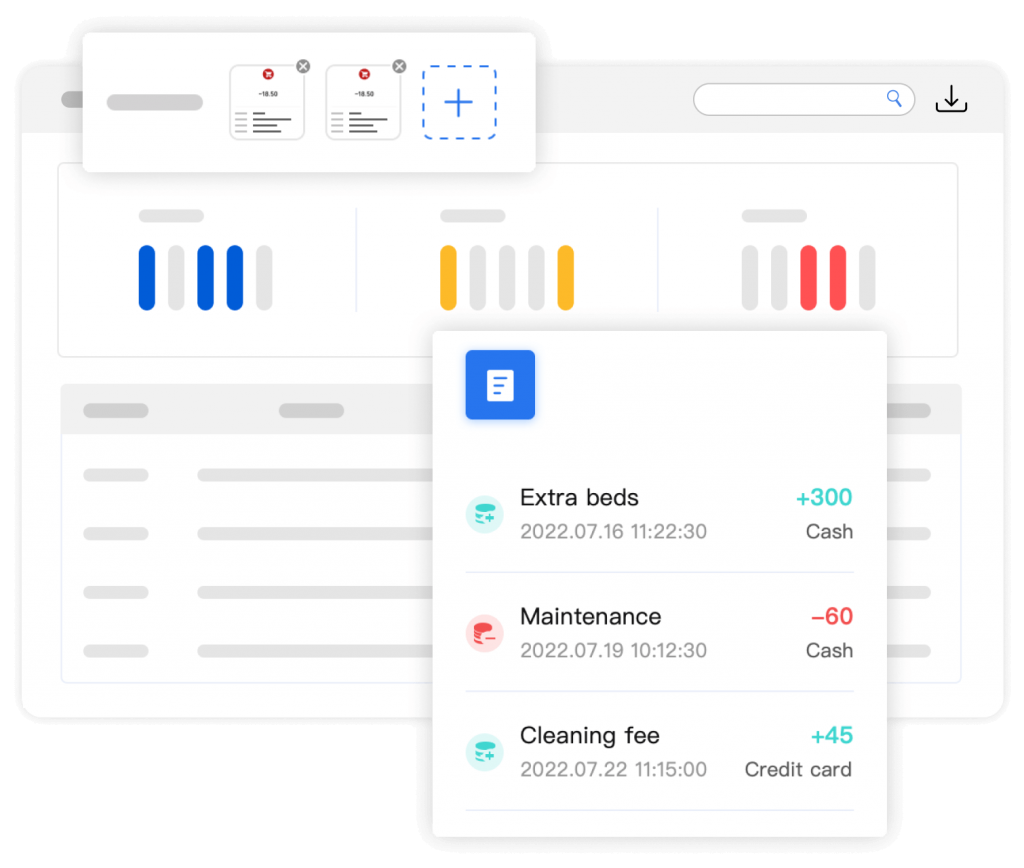
Smart Ways to Reduce Your Airbnb Startup Cost
Running a profitable Airbnb means more than just earning—it’s about managing your expenses wisely.
While some costs, like taxes, HOA fees, and platform charges, are fixed, many others can be optimized. Below are practical strategies to help you reduce unnecessary spending and improve your return on investment.
1. Optimize Procurement
You should evaluate quotes and services from different suppliers to choose the most cost-effective partners.
Consider bulk purchasing to secure better prices. For instance, when buying linens, cleaning supplies, and amenities, negotiate with suppliers for wholesale rates. This approach can often save you between 15% and 30% on these expenses.
2. Energy Savings
Implementing energy-efficient devices and eco-friendly practices can significantly lower costs and benefit the environment.
Consider installing LED bulbs, outdoor motion sensors, smart thermostats, and high-efficiency appliances. These upgrades can reduce energy consumption noticeably.
Additionally, posting water-saving tips on your property can encourage guests to be mindful of their usage, which can further decrease your water bill.
According to the U.S. Department of Energy, hosts can save about 10% to 30% on utility bills by adopting energy-saving measures.
3. Regular Maintenance
Establishing a routine for inspections and maintenance is essential for all Airbnb hosts. Regularly checking appliances, plumbing, and facilities ensures everything operates smoothly.
This proactive approach helps identify potential issues before they escalate into costly repairs.
Regular maintenance can reduce unexpected expenses by 30% to 50%, protecting your assets and enhancing the guest experience.
4. Reduce Marketing Costs
Marketing expenses can add up quickly, but there are numerous ways to minimize these costs.
- Collaborate with Local Businesses: Partner with nearby restaurants and attractions to refer guests to each other. Participating in local festivals or events can also attract more visitors to your property.
- Leverage Social Media: Hire a professional to take high-quality photos of your property and share them on your Facebook, Twitter, or Instagram pages. This can effectively reach your target audience without significant advertising costs.
5. Implement Automation Management Tools
Utilizing Airbnb management software like Hostex can significantly enhance operational efficiency and reduce your Airbnb startup cost. By automating key tasks, you minimize the need for manual labor and save both time and money.
Processes such as booking management, calendar synchronization, guest communication, and cleaning assignments can all be handled automatically.
According to Hostex surveys, hosts using their software can cut monthly labor costs by up to 70%, making it a smart investment for reducing long-term expenses.

Common Questions
How to Start an Airbnb Business?
We previously wrote an article specifically addressing this question. You can find it here. Here’s a brief overview of the steps involved:
- Choose the Right Property: Start by selecting a suitable property for your Airbnb. This could be your own home, a spare room, or a dedicated investment property. It’s essential to consider location, market demand, and potential guest demographics.
- Register and Create an Account: Visit the Airbnb website and sign up for an account. Follow the prompts to enter your personal and property information.
- Prepare Your Property: Ensure that your space is clean, safe, and equipped with basic amenities such as beds, bathrooms, and kitchen supplies. Consider adding extra services and features to enhance the guest experience.
- Take High-Quality Photos: Upload clear and attractive photos of your property to draw in potential guests. High-quality images can significantly boost your booking rate.
- Set a Pricing Strategy: Determine a fair price based on market research and competitor pricing. You can use Airbnb’s smart pricing tool to help automate your pricing adjustments.
- Write a Detailed Property Description: Provide a thorough description of your property, including amenities, local attractions, and transportation options to help guests understand what you offer.
- List Your Property: Once everything is ready, publish your listing and start welcoming guests!
How Much Do Airbnb Hosts Make on Average Per Month?
This question does not have a standard answer, as Airbnb hosts’ income varies based on location, property type, seasonality, and market demand. According to Airbnb data, many hosts earn between $900 and $2,500 per month.
- Hosts in popular cities or tourist destinations often earn more.
- Entire homes generally generate higher income than shared rooms.
- Unique properties or those offering high-quality services tend to have better earnings.
How Much Does Airbnb Charge Hosts?
Airbnb charges a host fee when a booking is confirmed. This fee is automatically calculated based on a percentage of the booking subtotal. Airbnb service fees to maintain the platform and cover costs associated with helping you share your space, including:
- 24/7 customer support
- Marketing to guests through various channels
- Protection for you and your property
- Educational resources for hosts
Airbnb has two different fee structures:
- Split-Fee Structure: Hosts pay around 3%, while guests cover 12% to 14.2%.
- Host-Only Fee Structure: Hosts pay between 14% and 16%, with no charge to guests.
Hosts can employ various strategies to mitigate these fees, which we have discussed in detail in another article here.
How can Hostex help you save on costs?
- Seamless OTA Integration: Hostex connects multiple short-term rental platforms (like Airbnb, Booking.com, Expedia, Vrbo, Google Vacation Rental, etc.). This ensures your listings are up-to-date across all platforms, maximizing exposure and booking opportunities.
- Real-Time Calendar Syncing: PMS allows you to manage all property calendars on one platform, including availability, pricing, and booking rules. This centralized management makes it easier to monitor each property’s performance and make timely adjustments, minimizing the risk of double bookings.
- Automated Messaging: Auto-reply and triggered messaging features ensure you never miss a guest inquiry. It also allows you to provide useful information in advance, undoubtedly boosting guest satisfaction.
- Automated Tasks: Hostex can automatically generate cleaning tasks upon guest checkout and assign them to designated cleaners. You can also monitor the progress and check the results through task details.
- Team Collaboration: Hostex allows you to create customized sub-accounts for team members with specific permissions, enhancing team efficiency.
- Business Statistics: With Hostex, you can access real-time data analysis and reports. This helps you evaluate property performance, identify market trends, and make informed decisions based on data.
- Dynamic Pricing Tools: Hostex also integrates with dynamic pricing tools, helping you adjust prices based on supply and demand, seasonal changes, and competitor pricing to maximize your revenue.
- Direct Booking Site: Hostex offers a direct booking website builder specifically designed for vacation rentals. With this tool, you can avoid the high service fees associated with OTA platforms and also list your property on Google to attract more guests.
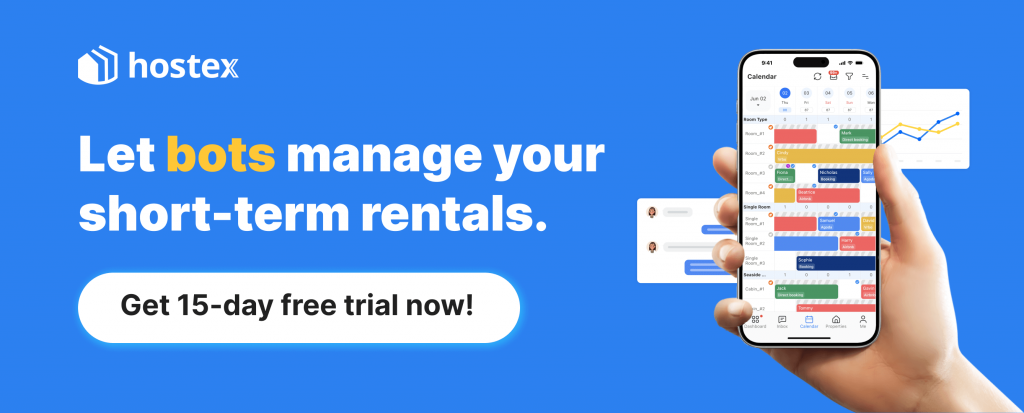

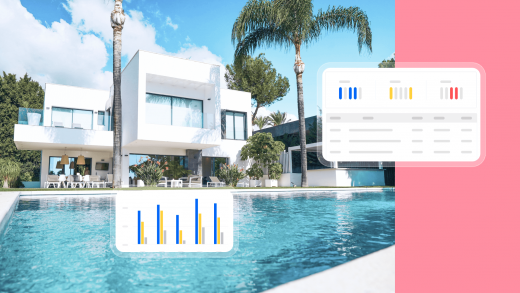
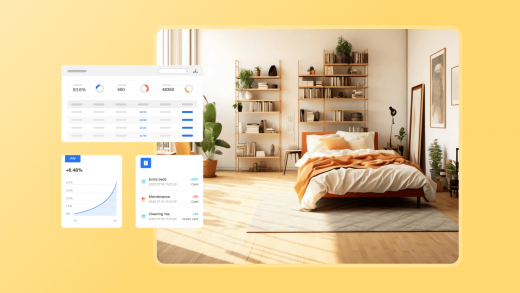

Inspiring as always!
Thank you for sharing your expertise!
good
This was a great article
Your writing always inspires me. Keep up the amazing work!
This was super helpful!
well-articulated
Thank you for sharing!
Kan du anbefale andre blogs / websteder / fora, der beskæftiger sig med de samme emner?
✌🏻
You’re absolutely right!
Thanks.